Diabetes is a health condition where the body is unable to produce enough insulin and properly break down glucose (sugar) in the food. Glucose is produced in the liver and the cells of the body need it for energy. Glucose comes from food when we eat, food is digested and the carbohydrates are broken down into simple sugars. The glucose enters the blood and insulin, a hormone produced by the beta cells in the pancreas, is released. Insulin helps to manage the movement and distribution of glucose around the body. Some glucose is converted into short term energy and some is stored for use at a later time. In Type I Diabetes, an autoimmune process destroys the insulin producing beta cells in the body. The pancreas cannot make insulin and a patient with this disease must take insulin for proper blood sugar control. Type II diabetes is the more common form of diabetes and 90-95% of people with diabetes have this form. It is commonly associated with older age, obesity, family history of diabetes, history of gestational diabetes, and physical inactivity. Approximately 80% of people with Type II diabetes are obese. Type II diabetics can produce insulin, but the insulin does not work.
The latest 2014 diabetes report card from the Center for Disease Control has documented that about 29.1 million people or 9.3% of the population have diabetes. About 21.0 million people have been diagnosed.
Even more frightening is the fact that 8.1 million people ( 27.8% ) with diabetes do not know they have it
BUT, there is something we can do about these statistics.
What we eat and how we live can have an enormous impact on this disease.
There have been many scientific studies done over the past 70 years that have looked at diabetes rates in various cultures. In those cultures where carbohydrate intake is high and fat intake is low, diabetes rates are low. This diet is associated with a more plant based diet instead of an animal based diet. This research has been expanded and it has been found that the highest association of diabetes is excess weight from a typical Western diet.
What can you do to prevent, manage, and treat diabetes?
Here are some essential steps to improve your health:
 1.Weight Management
1.Weight Management
This does not mean the ability to wear skinny jeans and live on water and vitamins. It means that each of us has the ability to be in control of what we weigh. That is powerful. You do NOT have to eat food that is “bad” for you. Food that fills your stomach but supplies very little nutrition to the cells of your body including the all-powerful brain is detrimental to your health. You should have a BMI of less than 25.
 2.Exercise
2.Exercise
Exercising should not be scary or frightening. You do not have to be a tri-athlete. Neither do you have to join a fancy work out facility. A brisk walk at least 30 minutes 4-5 times per week and strength training 20 minutes 3 times per week, can improve your overall health dramatically.
 3.Healthy eating
3.Healthy eating
Food is power. The foods you consume can make a tremendous difference in your physical well being as well as your emotional well-being. Yes, food affects your mood.
A good diet consists of a low glycemic load, high fiber, plant based diet of vegetables, beans, nuts, limited whole grains, fruit and low animal protein, whole foods diet.
What are whole foods?
These are foods that are unprocessed and unrefined foods. They typically do not contain added ingredients such as salt, carbohydrates or fats. Examples are unpolished grains, beans, fruits and vegetables.
The glycemic rating of a food indicates the influence that food has on your blood sugar and insulin level. A high glycemic index is greater than 70, medium is 56-69, and low is less than 55. The lower the glycemic level, the less it affects the blood sugar and insulin.
 4.Supplements
4.Supplements
There is some evidence that certain supplements have diabetes preventive properties. Below are some of the supplements that have been studied:
Magnesium – 400 mg/day
Alpha lipoic acid -200-300mg/day
Chromium – 400mcq/day
Vanadium – 100mcq/day
Here is a table listing the glycemic rating of many foods:
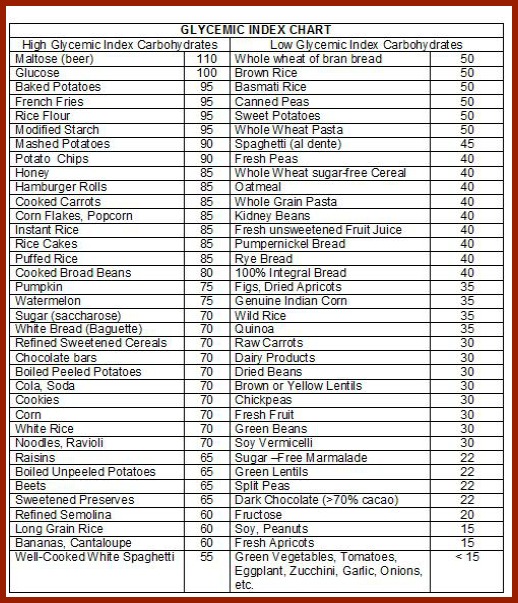
Glycemic index and glycemic load offer information about how foods affect blood sugar and insulin. The lower a food’s glycemic index or glycemic load, the less it affects blood sugar and insulin levels.
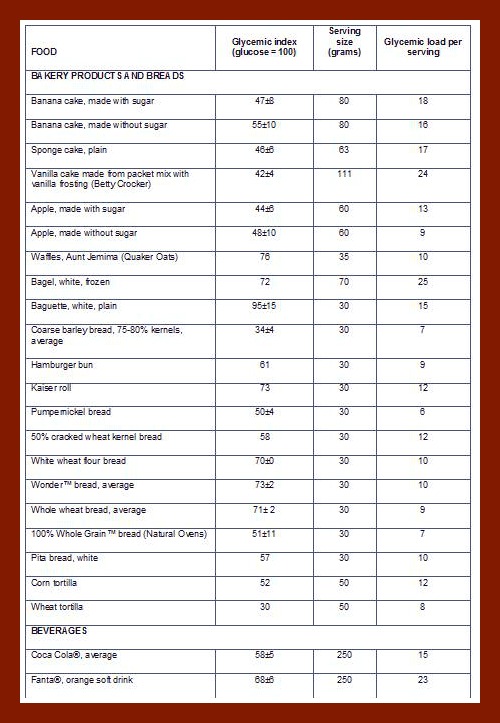
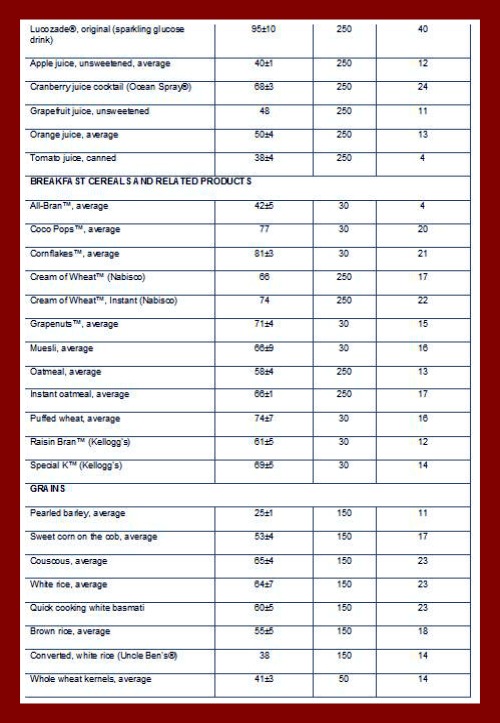
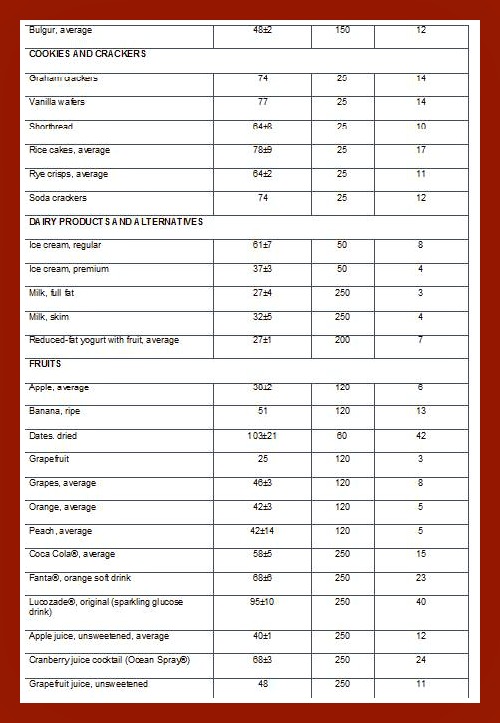
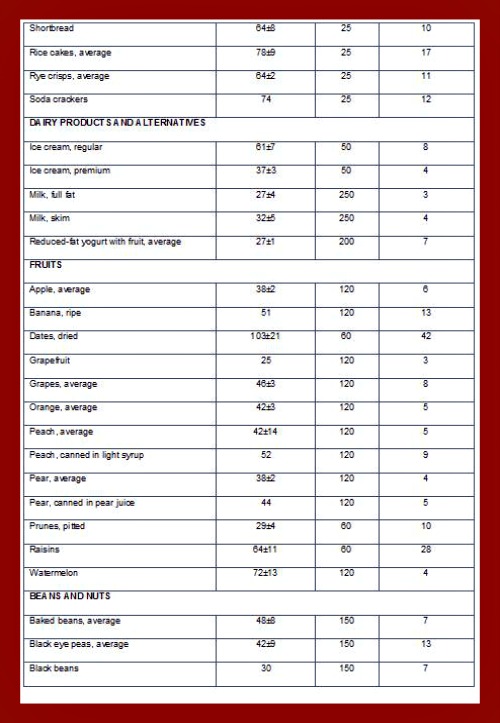
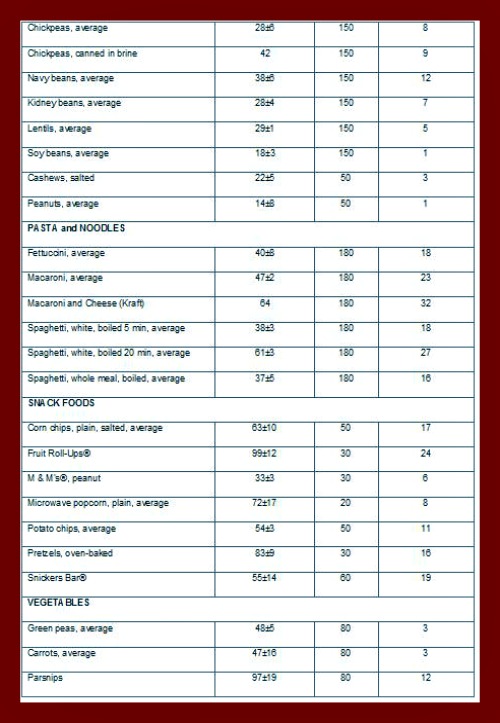
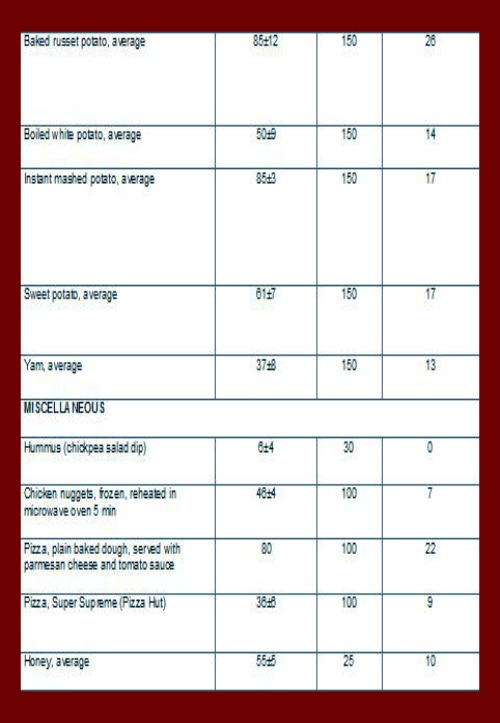
The take home message about diabetes prevention, management, and treatment is to talk with your physician about your concerns. You should have your blood glucose checked annually or more often if you are at high risk for diabetes. If you are diagnosed with diabetes, talk to your physician about ways of treating your diabetes that do not require medications.
Article updated 11/16/2015
Sources
“International tables of glycemic index and glycemic load values: 2002,” by Kaye Foster-Powell, Susanna H.A. Holt, and Janette C. Brand-Miller in the July 2002 American Journal of Clinical Nutrition, Vol. 62, pages 556.





